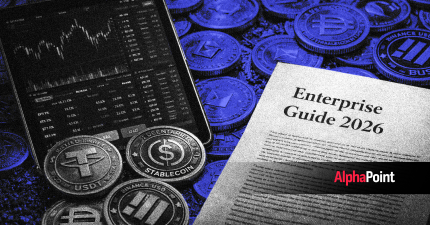How To Integrate a Payment Gateway into Your Exchange
As a cryptocurrency exchange operator, you need to offer a seamless payment experience to your customers, whether they’re buying, selling, or exchanging digital assets. A secure and efficient payment process builds trust and boosts customer satisfaction, contributing to the overall growth and reputation of your platform.
That’s where payment gateway integrations for exchanges come in.
With a diverse range of gateway options, from those that prioritize speed to others that offer multi-currency support, the right integration can greatly influence your platform’s accessibility to global users. Your focus should be on providing secure, quick, and easy-to-navigate payment processing.
This article explains what a payment gateway is, the different types, how to choose one, and the top providers.
What Are Payment Gateways and How Do They Work?
Payment gateways play a critical role in online transactions by facilitating the transfer of information between your website and the payment processor or bank.
Here’s a simple breakdown:
- A customer inputs their credit card details on your platform.
- The payment gateway secures this data and forwards it to the payment processor.
- The processor verifies with the credit card network and the issuing bank.
- An approval (or denial) is sent back through the payment gateway.
- Transaction complete: The funds transfer and the gateway relays a confirmation back to you.
Why is this important?
The Payment Card Industry Data Security Standard (PCI DSS) mandates secure environments for handling cardholder data. Your payment gateway ensures these standards are met so you can maintain your users’ trust.
Transaction fees apply here — they’re generally a small percentage of the transaction amount, plus some additional fixed fees.
As a crypto exchange owner, you’ll also have a merchant account specifically designed to hold funds from credit card payments. Your chosen gateway will determine the speed and array of payment methods accepted — making it an essential component of your platform’s operations.
A solid payment gateway means convenience and a secure, swift, and satisfactory experience for your users every time they transact.
What Are the Different Types of Payment Gateways?
Selecting the best payment gateway starts with understanding the different types.
Your specific gateway should improve the customer experience, provide secure payment processing, and align with your technical setup.
Hosted Gateway
Hosted payment gateways redirect your customers to the service provider‘s platform to process transactions.
It’s a straightforward solution with less maintenance on your end, and it offers a secure environment for customers to enter their credit card details. Well known examples include services like PayPal or Stripe.
These gateways manage all transaction security and compliance aspects, which significantly reduces the burden on you to maintain PCI DSS compliance.
Hosted gateways often come with extensive fraud prevention tools, automatic updates, and technical support from the service provider, ensuring your payment processing remains robust and reliable.
This approach also helps streamline the checkout process. Customers are often familiar with the trusted names behind these gateways, enhancing their sense of security and trust during transactions.
Non-Hosted Gateway
Non-hosted gateways keep the customer on your site, providing a seamless payment experience.
With non-hosted gateways, you can design a fully branded checkout process that aligns with your site’s aesthetics and user interface. This level of control allows for more customization options, such as personalized upsells or special offers at the point of purchase.
But implementing a non-hosted gateway requires a higher level of internal security measures and compliance with PCI DSS standards, since you’ll handle payment information directly.
This option is ideal for businesses looking to maintain control over their user experience while providing a smooth and cohesive checkout process.
Direct Post Method
With the direct post method, payment data goes directly from your checkout page to the payment processor, typically using secure forms. This method balances seamless customer experience with simple integration.
One of the key advantages is that it allows for a more streamlined user experience by keeping the customer on your site during the transaction process. This reduces the risk of cart abandonment that can occur when customers are redirected to external sites.
You can also integrate the direct post method relatively quickly. So it’s a viable option for businesses that need to implement a payment gateway without extensive development resources.
As with any method where you’re handling sensitive data, it requires robust security protocols to ensure customer information is safe from potential breaches.
Self-Hosted
Self-hosted payment gateways require you to collect payment details on your site, then relay them to the payment gateway‘s URL. With this option, you need comprehensive documentation and a sturdy security protocol to safeguard customer data.
The main benefit of a self-hosted gateway is your ability to fully control and customize the payment experience, ensuring it aligns perfectly with your brand.
This method also allows for greater flexibility in implementing extra features, such as loyalty programs, customer data analysis, and personalized offers.
In fact, personalization is one of the most important aspects of a self-hosted gateway. According to a McKinsey survey, companies that put customer value at the center of personalization efforts generate 5–15% higher revenues.
Just remember: The responsibility for security and PCI DSS compliance rests entirely with your business. You need regular updates and audits to maintain high security standards. For businesses with the technical capability and resources, self-hosted gateways can offer an unmatched level of customization and control.
Local Bank Integrations
With this approach, you’ll connect your exchange directly to your bank’s payment system. It’s ideal for businesses that prioritize strong bank relationships and direct handling of the financial process.
Local bank integrations often provide advantages like lower transaction fees and faster settlement times. They can also enhance trust among local customers who prefer transacting with familiar banking institutions.
This method can simplify the reconciliation process as well, since transactions link directly to your business’s bank account.
Integrating with a local bank can be complex, however, and may require significant development efforts — particularly if your business operates internationally.
A local bank integration can be a strategic move for businesses aiming to build strong, trust-based relationships with local clientele while maintaining efficient business operations.
How To Choose a Payment Gateway To Integrate
Consider factors such as the level of payment security, the ease of integration, the speed of transaction processing, and the ability to support various currencies. Each aspect is essential for ensuring a seamless and secure payment experience for your crypto exchange users.
Payment Security
PCI DSS compliance is non-negotiable when it comes to payment security.
Ensure your chosen gateway adheres to these standards and uses tokenization and encryption to protect sensitive data. Your crypto exchange’s reputation relies on users knowing their financial information is secure, which is why security should be the topmost priority in your selection process.
Advanced security features, such as fraud detection algorithms and two-factor authentication, can further enhance the protection of your customers’ data.
Regular security audits and updates from the payment gateway provider are also important to keep up with evolving threats.
Prioritize payment security: You’ll safeguard your exchange from potential breaches and liabilities and promote a sense of confidence among your users, which can lead to higher transaction volumes and customer loyalty.
Integration Capabilities
Your payment gateway should easily integrate with your existing systems, so look for gateways that offer robust APIs and plugins for seamless compatibility.
Remember, the easier the integration process, the quicker your exchange can go to market and the less likely you are to encounter disruptive issues that need extensive customer support.
Comprehensive documentation and support from the gateway provider can help your development team implement the integration smoothly. Also, a gateway that gives you flexibility in integration can accommodate future growth and changes in your business model. This will help streamline your operations and provide a unified view of your transactions and financial data.
Transaction Speed
Fast transaction processing is crucial for user satisfaction, so evaluate how quickly the gateway processes payments. Delays can lead to frustration and decreased trust.
A swift payment process improves the overall user experience, contributing to higher retention rates. Instant or near-instant transaction confirmations are particularly important in the fast-paced and often volatile crypto environment.
Quick settlement times also can enhance your cash flow management, allowing you to access funds sooner.
When assessing a payment gateway, consider its performance under peak traffic conditions and its capacity to handle large transaction volumes without compromising speed.
Choosing a gateway known for its reliability and efficiency can significantly impact your exchange’s reputation and operational efficiency.
Different Forms of Currency Support
To cater to a global audience, your gateway must be able to handle multi-currency transactions and maintain compliance across all of your operational areas. This can be especially challenging for international crypto exchanges, since each country has its own rules and regulations that continue to evolve as crypto adoption grows.
Check to see if the gateway supports the currencies relevant to your user base and if it can handle currency conversion with reasonable transaction fees.
The ability to transact in various currencies is a significant advantage in expanding your market reach. Multi-currency support not only enhances the customer experience by allowing users to pay in their preferred currency but also helps reduce conversion barriers and potential customer drop-off.
Some payment gateways also offer dynamic currency conversion. This automatically converts the transaction amount to the customer’s local currency at the point of sale. Ensuring your gateway can accommodate diverse currency needs can open up new markets and increase your potential customer base.
By focusing on these factors, you’ll be better equipped to choose a payment gateway that aligns with your exchange’s business needs, keeping your users’ best interests at heart.
Top Payment Gateway Providers
When considering payment gateway integrations for exchanges, choose a provider that’s reliable and supports a wide array of payment methods, including digital wallets and alternative payment methods.
By the end of 2024, predictions show that 70% of the world’s population will use digital wallets. This is due to the rise in contactless payments and an expanded effort to reach unbanked populations. So it makes sense to take the time to select the right provider.
These gateways can handle transaction data efficiently and offer strong brand recognition and security features, such as authorization and payment processing.
PayPal
PayPal‘s user-friendly interface and widespread recognition make it a trusted choice for both businesses and consumers, and it’s a favored choice for payment processing on crypto exchanges.
The gateway offers comprehensive fraud prevention and risk management capabilities to protect your transactions. It also supports a variety of payment methods, enabling users to transact using their digital wallets or linked bank accounts.
PayPal also provides tools for managing disputes and chargebacks, helping to minimize potential losses and maintain customer trust. The platform’s flexibility in handling both domestic and international payments makes it a versatile solution for exchanges looking to offer secure and convenient payment options.
With its extensive developer resources and integration options, PayPal seamlessly integrates into various business models.
B2BinPay
B2BinPay is a payment gateway that specializes in cryptocurrency transactions, providing exchanges with a secure and scalable solution for processing digital payments. The gateway supports instant cryptocurrency conversions, enabling businesses to manage their crypto assets efficiently.
It accepts a variety of cryptocurrencies and offers features like real-time balance checks and detailed transaction reports. B2BinPay also provides robust security measures, including multi-signature technology and advanced encryption, ensuring that transactions are protected against fraud and hacking attempts.
B2BinPay’s comprehensive API facilitates easy integration into existing systems, making it a practical choice for exchanges looking to expand their payment options. By leveraging B2BinPay, exchanges can attract a broader audience of cryptocurrency users, enhancing their market appeal.
Stripe
Stripe distinguishes itself by catering to businesses of all sizes, with a particular affinity for technology and internet-based businesses.
It provides seamless integration that supports various payment methods, including digital wallets and alternative payment systems. Stripe’s infrastructure strongly emphasizes security and efficient payment processing.
The platform’s powerful API allows for extensive customization, enabling businesses to tailor their payment processes to meet specific needs. Stripe also offers comprehensive reporting and analytics tools, providing valuable insights into transaction trends and customer behavior.
With features like subscription billing and marketplace support, Stripe is well-suited for diverse business models. Its global reach and commitment to innovation make it a leading choice for businesses seeking reliable and flexible payment solutions.
Skrill
Skrill stands out for its international service offerings, enabling exchanges (including fiat-to-crypto exchanges) to process online payments in numerous currencies and countries.
It also offers instant withdrawal capabilities, which is a huge advantage for traders looking for quick access to their funds. Skrill’s platform is designed for ease of use, offering a straightforward payment service.
Skrill also provides robust security measures, including anti-fraud technology and encryption, to protect user data and transactions. The platform’s ability to handle high-risk transactions makes it an attractive option for businesses in industries with elevated chargeback rates.
The platform also offers a loyalty program, allowing users to earn points on transactions, which they can redeem for various rewards.
By using Skrill, exchanges can benefit from a trusted, globally recognized payment gateway that supports efficient and secure transactions.
How Does AlphaPoint Help Your Exchange?
AlphaPoint’s white-label software suite includes payment processing, along with access to service partners that streamline payment processing for your exchange, and our digital wallet ecosystem can help power financial systems at a national scale.
With secure APIs at its core, the platform allows exchanges to easily integrate, administer, and manage both crypto and fiat payments for a seamless user experience.
But AlphaPoint’s integration solutions extend beyond just payment processing. They also help you build trust with your users by upholding high security standards and providing diverse payment options.
Explore how AlphaPoint can enhance your exchange — request a demo today.
About the author
Matthew Moss, Director of Product at AlphaPoint, drives innovation for its digital assets infrastructure and white-label trading platform, leveraging over 20 years of expertise in financial services and digital trading systems. Connect with him on LinkedIn.


